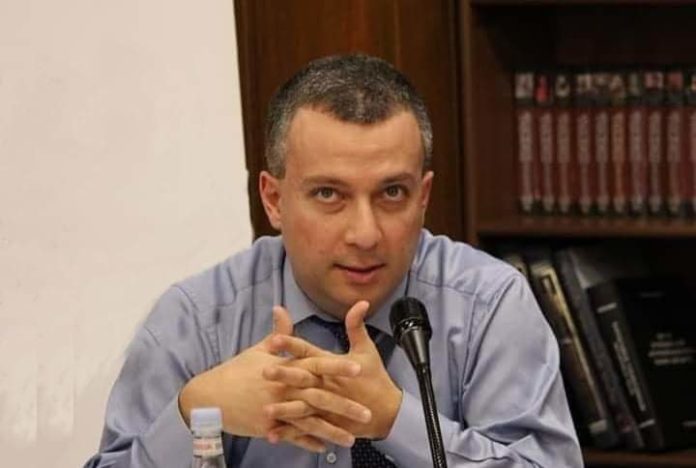As the blockade of Artsakh imposed by Azerbaijan passed the one-month milestone with no conclusion in sight, many seek to understand how this situation will end. To be able to answer that question, one must analyze the positions of the main actors who can influence the situation.
From the Azerbaijani perspective, this situation may continue for quite an extended period. By deploying self–described “eco-activists” in the Lachin corridor, Azerbaijan sought to create plausible deniability, claiming that the state has nothing to do here and that the blockade is the initiative of Azerbaijan’s “vibrant civil society.” However, very soon, this bubble burst and Azerbaijan changed its tactics. Now Baku rejects the mere fact of the blockade, claiming that either the road is open, or closed by Russian peacekeepers. President Aliyev reiterated this position during his January 10 press conference, arguing that there is no blockade, or at least the road is open for those who want to leave Artsakh.
So, from the Azerbaijani point of view, it is impossible to end the “non-existent blockade” – no emergency is there, and thus “eco-activists” may continue their protests as long as they want. Of course, Azerbaijan understands that every day of blockade adds more suffering for the Armenians living in Nagorno Karabakh, but this will only contribute to the realization of Baku’s official position – those Armenians who do not want to become Azerbaijani citizens should leave Nagorno Karabakh. Azerbaijan hopes that the growing sufferings of Armenians will force them to make a final decision – they have no future in Artsakh, and the only option to avoid starvation is to leave the region. Azerbaijan may end the “non-existent” blockade as a part of a package deal, which will include the signature of a peace agreement with Armenia on Azerbaijani terms, delimitation and demarcation of borders, and provision of a “Zangezur corridor” to Azerbaijan.
The Armenian government criticizes Azerbaijan for the blockade but states that it will not negotiate with Azerbaijan to end the blockade. During his January 10 press conference, the Armenian prime minister stated that Article 6 of the November 10, 2020 statement, which deals with the Lachin corridor, does not mention Armenia. Thus, Yerevan has no legal basis on which to negotiate regarding the end of the blockade. The government of Armenia applies to the international community, international organizations, and individual countries, seeking to raise their awareness of the humanitarian crisis in Artsakh and convince them to put pressure on Azerbaijan. Armenia also applied to the international courts, including the International Court of Justice, on the blockade issue, asking them to adopt interim measures to force Azerbaijan to end the blockade. Simultaneously, several representatives of the Armenian government, including the prime minister, are criticizing Russia and Russian peacekeepers for not realizing their obligations of securing free passage through the Lachin corridor. These actions spread more anti-Russian sentiment among Armenian society while triggering a harsh reaction from Russian officials.
Simultaneously, the Armenian prime minister argues that the Nagorno Karabakh authorities should deal with the problems of Nagorno Karabakh, and they must start a direct dialogue with Azerbaijan. In contrast, the Armenian government should tackle issues of Armenia. The call to the Artsakh government to start negotiations with Azerbaijan sounds quite strange, given that Azerbaijan rejects the existence of Artsakh/Nagorno Karabakh and will never negotiate with the Nagorno Karabakh authorities. During his January 10 press conference, the Armenian prime minister once more stated that all countries of the world recognize Nagorno Karabakh as part of Azerbaijan, hinting to Karabakh Armenians that they should accept this reality and try to negotiate with Azerbaijani authorities to find a way to live under Azerbaijani jurisdiction.
The blockade of the Lachin corridor does concern Russia. The Kremlin is not interested in a new escalation in the region, is not happy with the growing confidence of Azerbaijan to challenge Russia and discredit the Russian peacekeeping mission, and probably does not want to see a further increase of anti-Russian sentiment in Armenia. Meanwhile, Russia understands that any use of force against “eco-activists” will not only provide Azerbaijan with an argument to demand the withdrawal of Russian peacekeepers but also trigger tensions in Russia – Turkey relations. Given the growing economic cooperation between Moscow and Ankara, additional problems with Turkey are the last thing that Kremlin needs now. Thus, in the current situation, Russia cannot take decisive action to end the blockade and probably will continue political-diplomatic activities with little chances of success.








